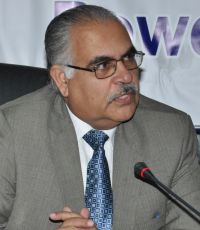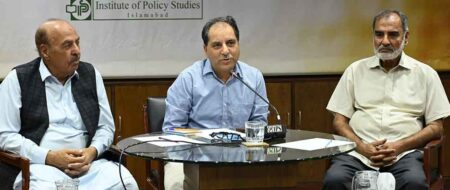Net Metering: An Alternate Source of Power for Electricity Consumers?
Electricity distribution companies (DISCOs) in Pakistan lack the capacity so far to provide net energy metering facility – which allows residential and commercial customers who generate their own electricity from solar power to feed electricity they do not use back into the grid – despite the approval of NEPRA regulations in this regard in September last year.
 This was highlighted in a roundtable session titled: ‘Net Metering: An Alternate Source of Power for Electricity Consumers?’ held at IPS on Jaunary 19, 2016. However it was hoped that the required tactical and resource planning to facilitate this modern approach towards solving the country’s energy crisis would be carried out in a few months.
This was highlighted in a roundtable session titled: ‘Net Metering: An Alternate Source of Power for Electricity Consumers?’ held at IPS on Jaunary 19, 2016. However it was hoped that the required tactical and resource planning to facilitate this modern approach towards solving the country’s energy crisis would be carried out in a few months.
The need to popularize and incentivize the use of solar technology for electricity generation in households across the country was also stressed to benefit from net metering technology on a large scale.
The session was chaired by Mirza Hamid Hassan, former federal secretary and chairman of IPS’ Tawanai (energy) program, and addressed by Mazhar Iqbal Ranjha, director, Standard Department, NEPRA, Wajid Ali Kazmi, chief engineer planning, IESCO, Faiz Muhammad Bhutta, member, Energy Committee, Pakistan Engineering Council (PEC). The session was attended by a number of energy experts, government officials, academia and industry representatives.
Outlining the regulations approved by NEPRA, Ranjha expressed his discontent over the response on the technology by DISCOs across the country for its implementation.
He said that if subsidies given by the government over fuel prices were rather given on renewable energy technology and devices like solar panels, the energy production of national grid could have alleviated significantly due to redistribution contributions from the net metering consumers.
Kazmi negated the impression and revealed that IESCO has already developed an SOP for net metering and was set to start implementing this technology at the Parliament House as a pilot project with the redistribution capacity of one megawatt through the solar power plant recently installed there.
He admitted that while the implementation of net metering at the government institution was symbolic in nature potentially providing the concept a much needed boost, there was still a lot of work needed in order to popularize the technology at the household level.
He observed that the response of IESCO was a bit slow because of technical issues like absence of a billing software for the purpose and training of the field staff and officers who were yet to be equipped with the expertise and knowledge pertaining to the technology.
He however claimed that the initial hurdles will be removed as early as possible and IESCO was already taking steps to incapacitate all relevant stakeholders in this regard by conducting capacity building workshops.
Bhutta stressed on earliest implementation of SRO 892(1) 2015 of NEPRA through which the net metering regulations have been approved. He recommended a few amendments in the SRO including reduction of the service period of 100 days for application processing and declaration of interconnect study charges on different categories of applications.
Few participants called for introducing one window solutions for net metering application procedures and also raised questions over some ambiguities in the NEPRA regulations as the net metering technology was already being employed in a number of countries across the world and, according to them, Pakistan could simply study and follow their best practices instead of trying to reinvent the wheel.
Hasan summed up the session terming formulation of net metering regulations a good sign while maintaining that the on-ground implementation of these regulations could take some more time.
He also stressed the popularization of renewable resources of energy in the country, especially solar energy, so that the net metering concept of community participation for power generation could be implemented successfully.












